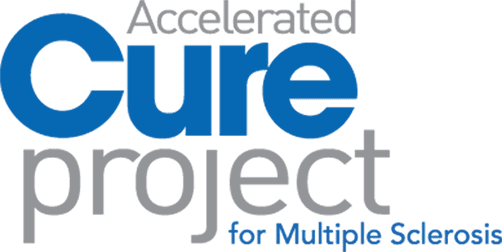We are thrilled to announce that Dr. Stephanie Buxhoeveden has joined the Accelerated Cure Project team as our new Chief Scientific Officer! With her broad experience and unwavering dedication to advancing MS research, Stephanie is set to propel our mission forward in groundbreaking ways. Please join us in giving a warm welcome to Stephanie – together, we are unstoppable!

Stephanie was born in northern Virginia and currently lives just outside of Richmond. She comes from a large Italian family. Stephanie has a Bachelor’s, Master’s, and PhD in nursing. She began her career as an EMT, then worked as an intensive care neurosurgical nurse before being diagnosed with MS at the age of 25. After her diagnosis she shifted her professional focus to treating and researching the disease as a MS certified nurse and a Nurse Practitioner. She has also served as Director of Nursing at an MS care center in Fredericksburg, VA. Stephanie was Biogen’s Medical Science Liaison for the Northeast region for three years, during which she supported multiple clinical trials and research projects at major research institutions.
“I was an adrenaline junkie and could never see myself sitting at a desk. In fact, I was adamant that I never wanted to do that. That’s how I started my career, and then after being diagnosed with MS and treating MS patients, I started on more of an intellectual, curiosity path. No regrets. I love that, too.”
Did you know?
Males and females have clear differences in how likely they are to get MS and how severe their symptoms become. Dr. Buxhoeveden did her doctoral dissertation on the epigenetic basis for this phenomenon using ACP Repository samples. Read more…


What is your proudest professional achievement?
“The highlight of my career was finding out that I had been granted an NIH research fellowship for MS research on the 10th anniversary of my MS diagnosis. That was the coolest full circle moment. I took this thing that could have just ruined everything and turned it into something that I would’ve never imagined but feel that much more fulfilled by. That was my ‘OK, you’re doing the right thing. You’re on the right track.’”
Stephanie is a stained glass artist in her free time and she also loves music. In her words, “I definitely have a musical/artistic side that if I don’t get my creative juices flowing, I struggle with the science side of my life. I strongly believe it takes both… My husband and I lead pretty hectic professional lives, so we maximize our down time as much as possible. We both enjoy traveling. There’s a big river here in Richmond, so we love hiking and getting down to the river. My parents live at the beach, so we try to get up there as much as possible.”

Stephanie was diagnosed with MS when she was 25 years old. She was a neurosurgical intensive care nurse in a competitive graduate program to become a nurse anesthetist. At the time, she was also a competitive weight lifter. One day, her right foot fell asleep when she was working out. Over the next week, the numbness spread up both of her legs. She brushed it off, hoping it was just a sports injury, and continued with her rigorous schedule. On the day that she was to give anesthesia for the first time as a student, she was changing into her surgical scrubs in the locker room. She realized that she had no feeling from the waist down and had lost the ability to move her right hand. Her vision became nothing but a blur of bright fluorescent lights.
“I tried to convince myself that this was just me caving under the pressure of a really important day, but in my heart I knew it was something much more ominous than that. I walked into the hospital that day as a provider, but I didn’t walk back out for over a week. When I did, I left as a patient. My hospital admission was full of spinal taps and MRI scans, IV infusions and painful tests. When the results came back, it was official. I was one of 2.3 million people worldwide living with MS at that time.”
How does MS affect your life today?

“MS affects my life in pretty much every way, but not always for the worse. If I could go back and not get MS, I wouldn’t because every single aspect of my life is both harder and better because of it. Of course, just like every other patient, I struggle with the symptoms every day and have to make adaptations. I think when I stopped resisting needing to adapt to my MS is when I started really thriving with it…Now I’m proud of what I’ve accomplished, not despite having MS but because of it. I see everything as an opportunity and a challenge to be that much better of a person. MS has given me a lot more empathy and it has lit a fire under me to get this all figured out, to help make people better.”
How did you first hear about ACP?
“I got a call from Laura Kolaczkowski about 10 years ago. She said, ‘We’re writing a grant for a patient powered research network and we really want you to jump in.’ Working on iConquerMS and getting it launched was my first foray into research.”

What inspires you most about ACP’s mission?

“I believe strongly in ACP’s mission and the patient-centeredness of it. The fact that the person with MS is truly at its center. We want to listen to the patients. We want to bring them to the table and make sure that everything that we do isn’t just for them, but they are a part of everything and they’re actually driving. I’ve never found that in another organization. By listening to patients and by involving them we’re going to be able to focus on what’s most impactful.”
How do you think your gifts & skills will help ACP’s work?
“I see myself as a hodgepodge of experience. I have the personal first-hand experience. I have a clinical background, so I really understand the ins and outs of treating patients and what happens in that room and those conversations. I try to volunteer for as much research as I can, so have been on the other side of being a research participant…There’s definitely an emphasis on qualitative research in nursing (what people are going through, how can we better manage their symptoms), which aligns really well with iConquerMS and the people powered research network side of things. I’ve got the quantitative epigenetic piece of it, too, through my NIH fellowship. I’m really excited to move the mission of the Biorepository forward and make sure that we’re making the most out of the data that we’re getting.”

What will you do as ACP’s Chief Scientific Officer?

I am chiefly responsible for the scientific mission and direction of ACP. To be the guiding light of what’s next for our Repository and the iConquerMS network, making sure to build upon the fantastic work that’s been done. Now science and technology has caught up to the point that we can start using things like AI and machine learning to take the resources we’ve spent so long cultivating and really start running with them. That’s what I’m excited about and that’s what I’m here for.”
What will your biggest challenge will be?
It’s a big job, but we’re on it. There are a lot of different domains that we’re operating in. My plan to tackle that is to bring the best and the brightest from a lot of different fields together. Of course we’re a small operation, but we have a rich history of collaboration. I think step one for me is going to be identifying those key collaborators and help make the most of it.

Stephanie Buxhoeveden’s arrival marks a new era for the Accelerated Cure Project. Her wealth of diverse experience and deep passion for MS research promise to drive our mission forward in innovative ways. Join us in welcoming Stephanie to our team – together, we forge ahead, driven by innovation and compassion, with MS patients at the heart of everything we do!




